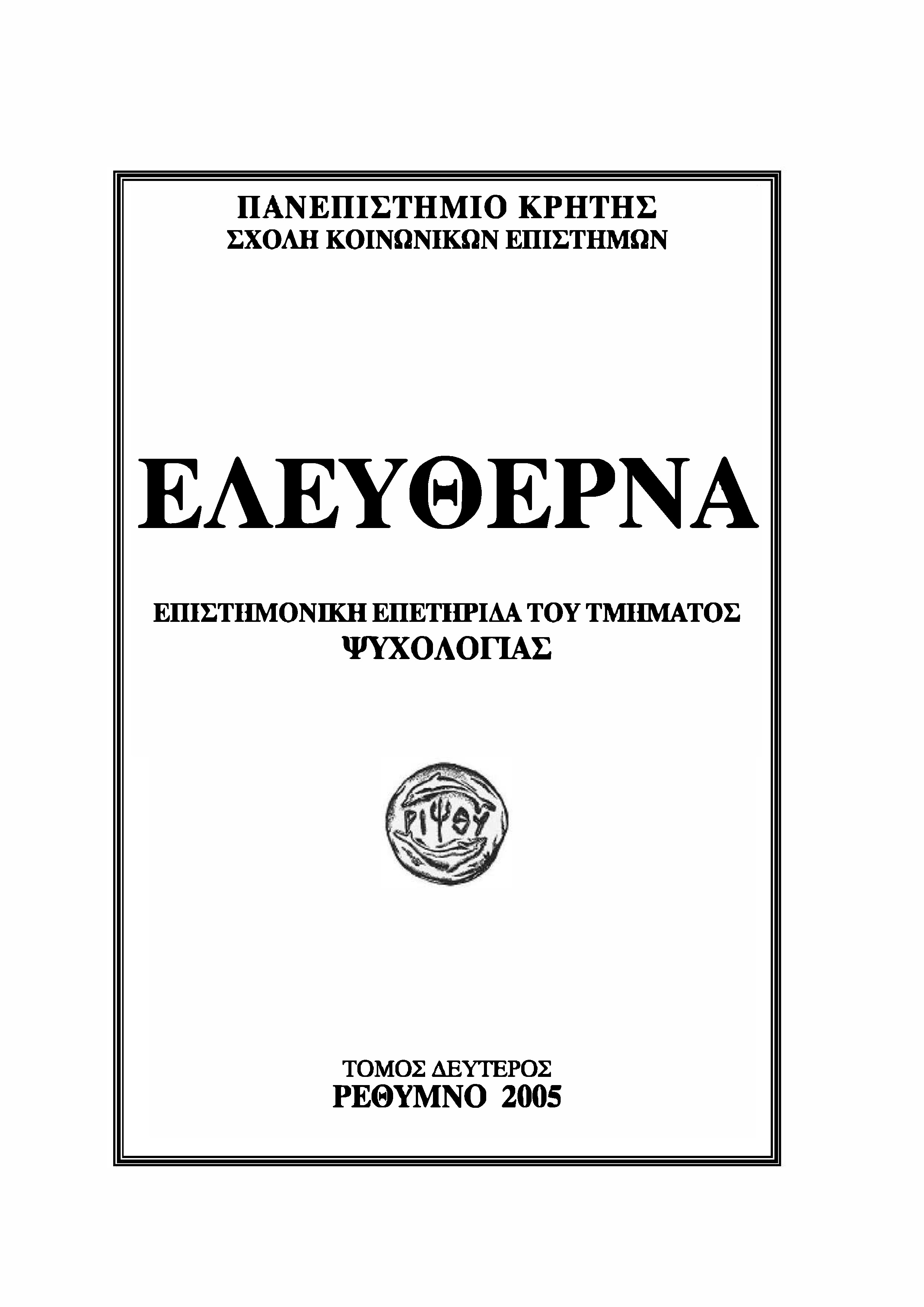The emotion lexicon of the Greek langu.age
DOI:
https://doi.org/10.26248/eleutherna.v2i0.156Keywords:
emotion, emotion names, Greek languageAbstract
In three studies, the emotion lexicon of the Greek language was explored. In the first study (2001) the concept of emotion was presented to 84 psychology students in order to list its members. The same sample rated on a 4-point scale a list of 280 terms, compiled by the author with emotion names found in dictionaries or used in other studies, for prototypicality or emotionness. Based on these results a new list containing the ''good" examples of the emotion names was compiled and a second study was conducted (2002). Subjects (98 psychology students) were asked to classify each term in one or more of the following superordinate concepts: physical I bodily state, cognition, emotion, personality trait.
The most representative emotion names of the two studies (!IO terms) were used in the third study conducted in the 2002-2003 academic year. Each term was printed on a small card. Fifty-three psychology students sorted cards into categories representing their best judgements about which emotions are similar to each other. The data were analysed using a hierarchical cluster analysis technique which yielded 17 interpretable clusters. The Greek findings were compared to the results of studies conducted in Germany, Canada and the U. SA.
Downloads
Published
How to Cite
Issue
Section
License
This work is licensed under a Creative Commons License Attribution-NonCommercial-ShareAlike 4.0 International (CC BY-NC-SA 4.0).
Under this license EJPBS provides immediate open access to its content on the principle that making research freely available to the public supports a greater global exchange of knowledge.


